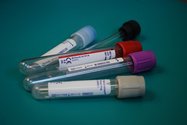
Why is monitoring your cholesterol levels so important? Should your cholesterol levels remain high, fat begins to build on the artery walls. Eventually, the buildup can stall the vessels and contribute to atherosclerosis, which raises the risk of heart attack and stroke.
Are you Good or Bad – Cholesterol? Cholesterol doesn't dissolve in the blood; it travels through the body by attaching to certain proteins. “Good cholesterol" clinically known as high-density lipoproteins (HDL), act like the cleanup crew, picking up excess fat from blood vessels; bringing it back to the liver for disposal. “Bad cholesterol" clinically known as low-density lipoproteins (LDL), deposits waxy stuff onto blood vessels. Your risk of heart attack and stroke increase when LDL becomes high.
You consume cholesterol from meat and dairy foods. Then the liver makes about 80 percent of the cholesterol in your body. The amount of cholesterol depends on several factors; genetics is the biggest one. Also, the liver can produce too much cholesterol. Body size can determine the amounts your body will produce. The smaller the body type, the less your body will produce. Another factor is your diet. Many foods are high in saturated or trans fat, which will cause your liver to produce more and depending on your intake, a lot more.
Fiber is a good way to release cholesterol from your body by connecting with the digestive tract. Another ally is plant sterols; elements found naturally in small quantities in fruits, vegetables, grains, nuts, and seeds. All cholesterol-lowering attributes, so much so those in the food industry have become more aware and add them to many of their products. Adding such items to your diet assist in controlling healthy cholesterol levels and reduces the risk of heart disease.
Does gender make a difference when it comes to cholesterol? Gender does not determine how much cholesterol, in general, is in the body. The body makes more HDL through estrogen; premenopausal women tend to have more good cholesterol than men. After menopause, HDL levels tend to fall.
Men and women 20 and over should check levels; with normal range results, a doctor will recommend tests every five years until age 40 or 50, and then more regularly after that. Schedule your cholesterol screening today. Routine blood work ordered by your doctor may also include checks for hemoglobin – H1C, glucose – sugar, triglycerides, fibrinogen and a few others that can be used to determine your levels; allowing you to work towards prevention to avoid the risk of heart and other diseases.
Your doctor can prescribe the best level of blood work; including all the critical markers for your current health condition and based on your prior history. For those over 50, this is likely beyond a routine blood panel. Here's to your GOOD cholesterol outweighing the BAD!
Everyone benefits from getting to the HEART of what matters! Please like and share this post!
Experience the Meliora difference; experience our pursuit of better. Visit us on LinkedIn
 RSS Feed
RSS Feed
